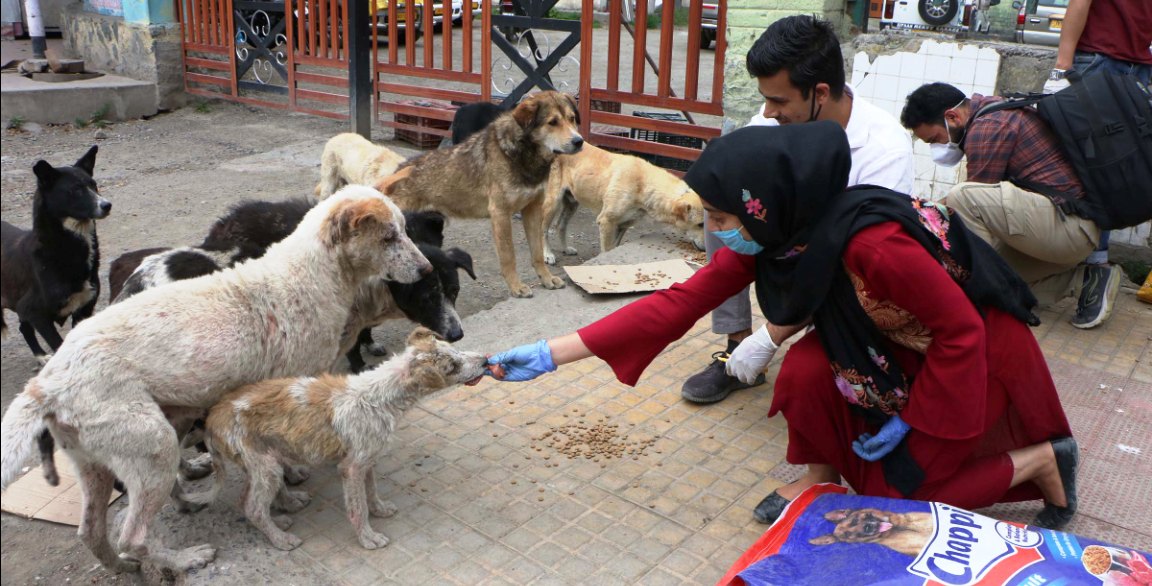SRINAGAR: Danish Siddiqui, India’s Pulitzer winning Reuters photographer who was killed in Afghanistan last week is being dubbed an “apologist” by some of the fierce critics of his work that included his brief Kashmir talk. He had visited Kashmir in the immediate aftermath of reading down of Article 370 on August 5, 2019.
The Humvee in which I was travelling with other special forces was also targeted by at least 3 RPG rounds and other weapons. I was lucky to be safe and capture the visual of one of the rockets hitting the armour plate overhead. pic.twitter.com/wipJmmtupp
— Danish Siddiqui (@dansiddiqui) July 13, 2021
In a TED Talk, Danish had termed Kashmir, one of the “most militarized” places in the world. He shared some of his pictures from Kashmir that included a bus, protected by the bamboo shields and used as a road blocker. The other photographs include some protests from the Anchar area of Soura.
“One of the pictures shared by Siddiqui was that of an X-ray of a boy’s skull. The Reuters journalist said the boy had suffered pellet injuries on his head from the attack by the Indian Armed Forces. He further added that the boy had received initial treatment in a hospital and was itching to leave the hospital for the fear of being arrested by the Indian Armed forces,” one website reported about Sidiqui’s “lopsided view of the conflict”.
Siddiqui’s killing in the crossfire between Afghan Special Forces and Taliban was mourned throughout the world over. An ace news photographer, Sidiqui’s coverage of the Covid19 was featured on the front pages of the world’s most newspapers.
Danish Siddiqui leaves behind an extraordinary body of work. He won the Pulitzer Prize for Photography and was embedded with the Afghan Forces in Kandahar. Sharing one of his pictures below. Sincere condolences. RIP https://t.co/xGhjJbsoCQ pic.twitter.com/9V7czR5DtB
— Anurag Thakur (@ianuragthakur) July 16, 2021
Jamia Milia is planning to showcase his work as Siddiqui has been a student of the university till 2007. “He was extremely vulnerable when covering the Delhi riots, but he still stood amidst that mob. How much does it take for a person to report raw truth when he knows that death is hanging over him?” The Indian Express quoted media student Srijan Chawla saying. “He was a student of mass communication from the 2007 batch and I’m a student of the programme from the 2021 batch. That is the only connection I have with him, but he means a lot to us… We know him through alumni groups and he is one person who has always been very appreciative and helpful.”
Interestingly, Danish was the son of Jamia teacher, now retired, Mohammad Akhtar Siddiqui. A commerce graduate, Danish had his masters in journalism. He worked with TV before joining Reuters in 2010.
“We used to tell him in the beginning what was the need for such a job, but we almost got used to it,” Siddiqui Sr told reporters. “He was a brilliant and dashing chap. He had a lot of commitment towards his work, passion to face challenges. Even during the pandemic, Delhi riots, he reported the facts despite the challenges.”
Danish had covered Iraq, Myanmar, Afghanistan, Hong Kong and Kashmir and more recently the Delhi riots. He was based in Mumbai. His image of a Muslim man being beaten by a mob during the Delhi riots was adjudged to be Reuters’ Picture of the Year 2020. Earlier in 2018, he was awarded the Pulitzer along with his colleagues from Reuters for their coverage of the Rohingya crisis in Bangladesh.
In Delhi, AAP leader and Rajya Sabha member Sanjay Singh regretted that Prime Minister skipped condoling the killing of the Pulitzer Prize-winning photojournalist. “It is unfortunate that while the Afghan President and the world media have expressed grief and shock over the incident, our own prime minister seems to be maintaining a discreet silence,” Singh was quoted saying.
As India posted world record of COVID cases funeral pyres of people, who died due to the coronavirus disease were pictured at a crematorium ground in New Delhi, April 22, 2021. @Reuters #CovidIndia pic.twitter.com/bm5Qx5SEOm
— Danish Siddiqui (@dansiddiqui) April 22, 2021
So strong is the hate campaign against Siddiqui, that the Editors Guild of India had to issue a statement terming the killing as an “irreplaceable loss to journalism”.
Noting that his death is “stern reminder” of the risks journalists take to report from the frontlines of conflict, the guild said it deeply disturbed by the vicious racist campaign being run against Siddiqui on social media. “His death is an occasion to remember him and all the journalists who have died in conflict reporting,” the Guild pointed out.
Meanwhile, the Taliban have regretted the death of Siddiqui. “We are sorry for Indian journalist Danish Siddiqui’s death. We regret that journalists are entering war zone without intimation to us,” Taliban’s spokesperson Zabiullah Mujahid was quoted saying. “Any journalist entering the war zone should inform us. We will take proper care of that particular individual.”
Siddiqui had covered a rescue of an Afghan government soldier and had miraculously survived. The second time, he was not lucky enough.















